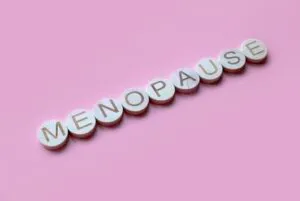Night sweats refer to excessive sweating during sleep that can soak through clothing and bedding. It is a common problem that affects many people and can significantly impact sleep quality. When night sweats occur, they can disrupt sleep, leading to fatigue, irritability, and decreased overall well-being.
Identifying the underlying cause of night sweats is crucial in order to effectively manage the condition. Night sweats can be a symptom of an underlying medical condition, medications prescribed, decrease in certain hormone levels or a result of environmental factors. By understanding the causes and triggers of night sweats, individuals can take steps to alleviate the problem and improve their sleep quality.
Causes of Night Sweats: What Triggers Them?
Night sweats can be triggered by a variety of factors, including, as noted above, environmental conditions, medications, hormonal changes, and medical conditions. Environmental factors such as hot weather or an overheated bedroom can lead to excessive sweating during sleep. Certain medications, such as antidepressants or hormone therapy drugs, can also cause night sweats as a side effect.
Hormonal changes, particularly in women, can contribute to night sweats. Menopause is a common time for women to experience night sweats due to the fluctuation of hormones in the body. Additionally, certain medical conditions such as infections, cancer, hormonal disorders, and neurological conditions can also cause night sweats.
Health Conditions That Cause Night Sweats
Night sweats can be a symptom of various health conditions. Infections such as tuberculosis or HIV can cause night sweats as the body tries to fight off the infection. Cancer, particularly lymphoma, can also lead to excessive sweating during sleep.
Hormonal disorders such as hyperthyroidism or pheochromocytoma can disrupt the body’s natural temperature regulation system and result in night sweats. Neurological conditions like autonomic dysreflexia or stroke can also cause night sweats as a result of dysfunction in the nervous system.
Menopause and Night Sweats: What You Need to Know
Menopause is a natural stage in a woman’s life when her menstrual periods stop, and she can no longer conceive. It typically occurs between the ages of 45 and 55, but can occur sooner, particularly if surgically induced. Along with other symptoms such as hot flashes and mood swings, night sweats are a common occurrence during menopause.
During menopause, there is a significant decrease in estrogen levels in the body. This hormonal change can disrupt the body’s temperature regulation system, leading to hot flashes and night sweats. Night sweats during menopause can be particularly bothersome as they can disrupt sleep and lead to fatigue and irritability.
Treatment options for menopausal night sweats include hormone replacement therapy (HRT), which involves taking estrogen to alleviate symptoms. However, HRT is not suitable for everyone and may have potential risks. Over the past two decades, “Bioidentical Hormone Replacement Therapy” (BHRT) or “Bio-Natural Hormone Replacement Therapy” (BNHRT) has been shown to have fewer side effects and less serious side effects than their synthetic counterparts. Other non-hormonal treatments such as lifestyle changes, herbal remedies, and medications may also be considered.
Night Sweats and Anxiety: A Vicious Cycle
Anxiety and night sweats often go hand in hand, creating a vicious cycle that can be challenging to break. Anxiety triggers the body’s fight-or-flight response, which can lead to an increase in body temperature and sweating. This can result in night sweats during sleep.
On the other hand, night sweats can worsen anxiety symptoms. Waking up drenched in sweat can be distressing and cause feelings of panic or unease. The fear of experiencing night sweats can also create anxiety about going to bed, leading to difficulty falling asleep or staying asleep.
Coping strategies for managing anxiety-related night sweats include practicing relaxation techniques such as deep breathing exercises or meditation before bed. Creating a calming bedtime routine and ensuring a comfortable sleep environment can also help reduce anxiety and improve sleep quality.
Tips to Help You Sleep Better with Night Sweats
While it may not be possible to completely eliminate night sweats, there are several strategies that can help individuals sleep better despite experiencing them. If the night seats are caused by a lack of estrogens (estradiol), then restoring that hormone to appropriate levels with BHRT/BNHRT can often address this issue in the short term. Practicing good sleep hygiene is essential, which includes maintaining a consistent sleep schedule, creating a comfortable sleep environment, and avoiding stimulating activities before bed.
Choosing the right bedding and clothing can also make a difference. Opting for moisture-wicking fabrics that help regulate body temperature can help keep individuals dry and comfortable throughout the night. Additionally, using breathable bedding materials and keeping the bedroom cool can help reduce the occurrence of night sweats.
Relaxation techniques such as progressive muscle relaxation or guided imagery can also be beneficial in managing night sweats. These techniques can help individuals relax and reduce stress, which may contribute to excessive sweating during sleep.
Cooling Techniques for Night Sweats
Implementing cooling techniques can help alleviate night sweats and improve sleep quality. Using fans or air conditioning in the bedroom can help circulate air and keep the room cool. Placing a fan near the bed or using a ceiling fan can provide a constant breeze that helps regulate body temperature.
Investing in cooling pillows or mattress pads made from materials that dissipate heat can also be helpful. These products are designed to provide a cooler sleeping surface and prevent excessive sweating during sleep.
Taking a cold shower before bed can also help lower body temperature and reduce the likelihood of night sweats. The cool water can help cool down the body and create a more comfortable sleeping environment.
Lifestyle Changes to Reduce Night Sweats
Making certain lifestyle changes can help reduce the frequency and severity of night sweats. Maintaining a healthy diet that includes plenty of fruits, vegetables, whole grains, and lean proteins can support overall health and potentially alleviate night sweats.
Regular exercise has been shown to improve sleep quality and reduce symptoms of menopause-related night sweats. Engaging in activities such as walking, swimming, or yoga can help regulate hormones and promote better sleep.
Stress management techniques such as mindfulness meditation, yoga, or deep breathing exercises can also be beneficial in reducing night sweats. Stress can exacerbate night sweats, so finding healthy ways to manage stress can help break the cycle.
Identifying and avoiding triggers that may contribute to night sweats is also important. This may include avoiding spicy foods, caffeine, alcohol, or smoking, as these substances can increase body temperature and trigger sweating.
When to See a Doctor for Night Sweats
While occasional night sweats are usually not a cause for concern, there are certain circumstances when it is important to seek medical attention. If night sweats are persistent, severe, or accompanied by other symptoms such as fever, weight loss, or fatigue, it is recommended to consult a healthcare professional.
Providing a detailed medical history to the doctor is crucial in order to help identify the underlying cause of night sweats. This may include information about medications being taken, recent illnesses or infections, and any other relevant medical conditions.
Breaking the Night Sweats Cycle for Better Sleep
Night sweats can significantly impact sleep quality and overall well-being. Understanding the causes and triggers of night sweats is essential in order to effectively manage the condition. By identifying the underlying cause and implementing appropriate treatment options, individuals can break the cycle of night sweats and improve their sleep quality.
Coping strategies such as practicing relaxation techniques and implementing cooling techniques can also help alleviate night sweats and promote better sleep. Making lifestyle changes such as maintaining a healthy diet, exercising regularly, and managing stress can further support overall health and reduce the occurrence of night sweats.
If night sweats are persistent or accompanied by other concerning symptoms, it is important to seek medical attention to determine the underlying cause and receive appropriate treatment. With proper management and care, individuals can break the night sweats cycle and achieve better sleep quality.
If you’re experiencing night sweats, it could be a sign of hormonal imbalance. Hormone Health and Weight Loss offers valuable insights into the causes and solutions for night sweats in their article “Night Sweats: Causes and Treatment Options.” This informative piece discusses the various factors that can contribute to night sweats, such as menopause, medications, and medical conditions. It also provides practical tips and treatment options to help alleviate this uncomfortable symptom.






